Show details
Creating our own robot with microbits
| PGCE Computing Specialism students will create their own robots using micro: bits. |
|
Target audience Trainee teachers |
|
UCL IOE
Yasemin Allsop y.allsop@ucl.ac.uk 07717774030 |
|
UCL IOE
Bedord Way 20 WC1H 0AL London United Kingdom |
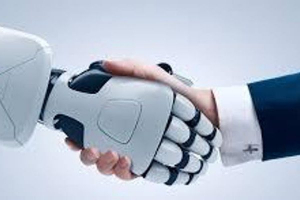
22.01.2020 - 22.01.2020 | 08:30 - 18:00
The 4rd Annual IEEE UK and Ireland RAS Chapter Conference
Manchester, United Kingdom
Show details
|
The aim of the annual IEEE UK&I RAS conference to improve the communication of its members and other researchers, young students and industrial professionals who are interested in the activities of RAS in research, development and education, share the knowledge, latest research achievements and technologies in RAS, and promote collaboration and knowledge transformation. Synchronising with the pace of IEEE Robotics and Automation Society, the UK & Ireland RAS chapter addresses the advancement of the theory and practice of robotics and automation engineering and science and of the allied arts and sciences, and for the maintenance of high professional standards among its members. Today, Robotics and Automation Technologies have been widely applied in various areas, such as Extreme & Hazard Environments, Manufacturing, Food Automaiton, Medical Surgery, Healthcare, Agriculture, Urban Search and Rescue, Surveillance, etc. AI technology has played significant roles in the development of RAS. Internet of Robotic Things (IoRT) inspired wider applications of RAS. The value of IoRT has been demonstrated in distributed, heterogeneous robot control paradigms like networked robot systems or robot ecologies, or in approaches such as ubiquitous robotics and cloud robotics that place resource-intensive computation on the cloud. |
12.02.2020 | 15:00 - 16:00
Robotics Forum Seminar - Medical Robots
London, United Kingdom
Show details
|
Abstract The talk will discuss the transition from open, to minimally invasive and non-invasive surgery, and how this necessitates the development of medical robots. The state-of-the art and innovative developments in the field will be presented. Advances in artificial intelligence offer great promise towards automation in robotic surgery, which however pose significant practical, ethical and legal concerns. To this end, novel “human in the loop” approaches based on advanced human-robot interfaces are proposed. Bio George has a background in Mechatronics and Computer Science and is leading the Human-centred Automation, Robotics and Automation in Surgery -HARMS- lab, at the Department of Surgery and Cancer and Hamlyn Centre, Imperial College London. Research at the HARMS lab is underpinned by a Human-Centred paradigm. The main goals of this paradigm can be broadly identified: (a) Patient- and surgeon-specific designs with the aim to minimize and eliminate invasiveness, optimise outcomes, improve ergonomics and promote personalisation; (b) Frugal innovation to provide affordable surgical technologies, allow infrastructure re-purposing and small theatre footprint; (c) Perceptually-enabled functionalities to improve ergonomics, reduce mental fatigue, facilitate automation and increase safety; (d) Enabling technologies able to introduce radical change, and augment performance and capabilities by making robotic surgery attainable and accessible; (e) Disruptive innovation that pushes the boundaries by proposing new paradigms in minimally invasive surgery. |
24.02.2020 | 08:00 - 18:00
A day of coding & Robotics with Ohbot
London, United Kingdom
Show details
| PGCE students will learn to code via Ohbots. |
|
Target audience Trainee teachers. |
|
UCL IOE
Yasemin Allsop y.allsop@ucl.ac.uk 07717774030 |
|
UCL IOE
Bedford Way 20 WC1H 0AL London United Kingdom |
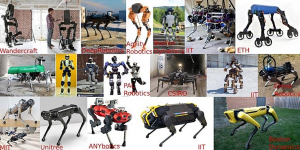
12.11.2020 | 09:30 - 10:30
The 1st UK Legged Robotics Workshop
Oxford, United Kingdom
Show details
| UK-RAS Legged Robotics Task Group seminar, part of the RAIN Webinar Series |
|
Target audience Members of the RAS community |
| UK-RAS Legged Robotics Strategic Task Group |
|
Online Event
Banbury Road 23 OX2 6NN Oxford United Kingdom |
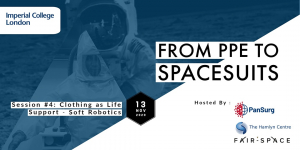
13.11.2020 | 13:00 - 14:00
From PPE to Spacesuits #4: Clothing as Life Support - Soft Robotics
London, United Kingdom
Show details
|
Garments have allowed us to operate in climates and environments that our bodies are not made for – the extreme cold and hot cycles in spacewalks and in hospitals with infectious diseases. A spacesuit is a life support system. For most terrestrial applications, life support systems are used by patients who are too ill to sustain life on their own. In space, life support systems are used by the super fit – astronauts. Could we design better life support systems for the sick by learning from the designs we have for the super fit? Could the design of peri-operative wearables spark new ideas for the next generation of spacesuits as we head for surface missions and commercial crew operations? Join us online for 1 hour of inspiration and deep insights. Our exciting line up of panellists will present their ideas and include a panellists discussion linking to moderated Q&A’s with your input. |
|
Target audience Public |
| PanSurg / The Hamlyn Centre / FAIR-SPACE |
|
Online Event
Exhibition Road South Kensington Campus SW7 2AZ London United Kingdom |
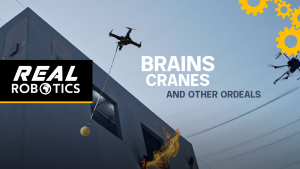
24.11.2020 | 19:00 - 20:00
Global Online Premiere for Behind-the-Scenes Robotics Documentary, “Brains, Cranes and Other Ordeals”
Leeds, United Kingdom
Show details
|
Real Robotics, a state-of-the-art engineering lab at the University of Leeds that develops custom robots to solve real-world problems, today announces the global online premiere of its feature-length film. The film documents the Real Robotics team in their bid to win the Mohamed Bin Zayed International Robotics Challenge (MBZIRC) earlier this year. The film will debut exclusively on YouTube at 7pm GMT on November 24th 2020. This exclusive feature-length documentary, “Brain, Cranes and Other Ordeals”, tracks the team’s progress through to the final rounds of the world-renowned MBZIRC bi-annual international robotics competition, hosted in Abu Dhabi in February 2020. Real Robotics was the only UK team to qualify for the last stages of the contest. The exciting 55-minute film was developed in-house and offers a fascinating, behind-the-scenes insight into the high-octane world of competitive robotics – where the world’s leading robotics researchers compete for the prestigious winner’s title and $5million worth of prize money. Professor Robert Richardson, head of the Real Robotics Lab and current Chair of the UK Robotics and Autonomous Systems (UK-RAS) Network commented: “This film really captures the thrills and spills of competing in this incredibly high-profile event, where we were pitted against the world’s top robotics problem-solvers. Our aim in making this documentary was to offer an access-all-areas insight into the challenges, the pressures and the exhilaration of showcasing robotics innovation at the very top level, and we can’t wait to share this film with a worldwide audience.” How will the only UK team fare against 31 teams of the best robotics brains from around the world? Tune in to the Real Robotics YouTube channel (@realrobotics) at 7pm GMT on November 24th 2020 to find out! |
|
Target audience Public |
|
Real Robotics Lab
Robert Richardson R.C.Richardson@Leeds.ac.uk |
|
Online Event
Real Robotics University of Leeds LS2 9JT Leeds United Kingdom |
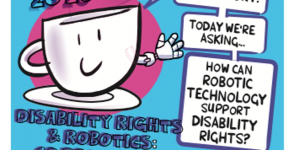
10.12.2020 | 14:00 - 20:00
Disability Rights and Robotics: Co-producing futures
Bristol, United Kingdom
Show details
|
This is a UWE Bristol Social Science in the City event celebrating Disability History Month In this time of rapid social change to our social and work lives, relationships and leisure, there are new technologies that might support disability rights like ‘driverless cars’, smart phones, social media and new robotic technologies. Members of the team of 25 co-researchers from the University of the West of England, Fairfield Farm College and Wiltshire Centre of Independent Living used a knowledge café methodology to ask How can robotic technologies support disability rights? Sign up for an online 15 minute tour of the Bristol Robotics Laboratory Assisted Living Studio with Professor Praminda Caleb-Solly running between 2-4pm email here for your place on the tour (limited numbers) – sophie.savage@uwe.ac.uk The robotic tour will take place on Microsoft teams which includes the option of live captioning, and your tour guide will be using limited BSL. The tour will be scripted and this script will be available to those registered. A recording of the robotic tour is also available for those who wish to engage in their own time. To join the mini knowledge café 6pm -8pm please sign up for a ticket and we will email you the link closer to the date. Any problems please - sophie.savage@uwe.ac.uk Café Programme: Experience - From your experience, how do you think robotic technology might enable your rights in everyday life? Deepening the Inquiry - Sharing our project and its key messages– ‘Disability Rights and Robotics: co-producing futures’ Knowledge for Action - Generating your priority questions for further co-production research See our report and cartoon for more details on our project (these links will only work for those internal to UWE). Disability Rights and Robotics cartoon copyright Sam Church and Tillie Curran |
|
Target audience Public |
| UWE Bristol |
|
Online Event
Bristol Robotics Laboratory, T-Block UWE Bristol BS16 1QY Bristol United Kingdom |